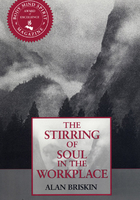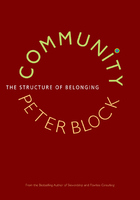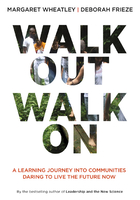How I Learned About Intelligent Disobedience
To the young and the not so young who make decisions to obey or not to obey, conscious of their personal responsibility for the outcome regardless of which decision they make, no matter who gave the order.
WHAT EXACTLY IS INTELLIGENT DISOBEDIENCE? I had the same question when I first heard the term. These are two words that don't usually fit together.
We know what obedience is: following orders or rules or established ways of doing things. Obeying usually keeps life running smoothly. Disobedience is a contrary response to these common obligations of life. Disobeying often results in unpleasant consequences. Those issuing the orders or setting the rules are inclined to enforce them, and they usually have the power to do so. Therefore, it's reasonable to ask, under what circumstances can disobedience be considered intelligent?
I suspect you would agree that those with the authority to issue orders or to establish rules are not infallible. You've experienced that reality, perhaps more often than you'd like. In some circumstances, the information on which authorities are basing a specific order or rule may be incomplete, old, or plain wrong. Their intentions may be excellent, but their assessment of the situation and their judgment may be faulty. Or the order may be ethically problematic. In these circumstances, implementing that order or rule would probably lead to an undesirable outcome, perhaps even a dangerous one. It would be better to question the order rather than obey it. That would be Intelligent Disobedience.
This seems like common sense, yet it can be a difficult thing to do. People like to believe they would have the courage to resist an order that would cause harm. Contrary to this belief, research and history show us that in many situations the majority will obey. Depending on the circumstances, perhaps you would obey.
The purpose of this book is to help individuals at all stages of human development, and in all types of work, achieve the awareness and skills to avoid the "just following orders" trap. Regardless of the pressure we feel to obey those in authority, we are accountable for our actions. We need to be able to take a stand and do the right thing when what we are told to do is wrong. If we do this well, even those issuing the wrong orders will benefit from our having made the right choice.
I first heard the term Intelligent Disobedience when I was teaching a class on leader-follower relationships to a group of mid-level managers. We were at the point in the class where I introduce the question "When is it appropriate to obey authority and when should authority be questioned?" This is a central question for all of us who live in complex societies and who work or study in hierarchies in which other people have the authority to give us directions.
A woman seated to my left raised her hand and said,
"I have an example of this under the table."
The whole class joined me in a moment of collectively being startled by her statement. What did she mean, "under the table"?
Her classmates had stopped paying attention to the unusual act of bringing a dog to class every morning. She was low key about it and the dog rested quietly, almost invisibly, at her feet. I taught only one day of the students' two-week course. In my focus on making sure the room and equipment were properly set up, I had failed to register this student was accompanied by a dog. So much for my powers of observation!
She went on to explain,
"I am helping to train a guide dog that will assist an individual who is blind. At my stage of training, the dog is learning to be comfortable in busy social situations and to obey all the basic commands she will be given when working as a guide dog. When I finish this part of her program, she will go to a more skilled trainer who will teach her Intelligent Disobedience."
My ears perked up more or less like a dog that has just heard something that grabs its attention!
"What do you mean by Intelligent Disobedience?" I asked, intuitively attracted to this term I had never heard before.
"Most of the time," she continued, "it's really important that the dog obeys the human's instructions. But sometimes it would be dangerous to do so; for example, when a man with limited sight gave the command to step off a curb just as a quiet hybrid car was turning into the street. The dog must know not to obey a command that will put the team-human and dog-in danger. Learning not to obey is a higher order of skill. It will require a trainer who is more experienced than I am."
Here was an example right under my nose of what I had been thinking and writing about for fifteen years! It is part of the socialization process in any human culture to teach our young to obey. Some cultures do it in harsh, authoritarian ways, and others do so more gently. However it is accomplished, children must be responsive to formal authority as they grow into adulthood. As adults, they must be responsive to the formal authorities in their organizations' chains of command.
If the kindergarten teacher asks everyone to rest quietly for fifteen minutes, the students must do so and not pester the kids next to them whose eyes are closed. If the football coach says no partying the night before the game, a player must resist temptation from peer pressure to party or face being sidelined. The examples are endless of how we teach and reinforce the obedience that the culture requires.
But how do we teach obedience without teaching it too well? This isn't a question that is sufficiently considered. There are enough examples of young people acting out in defiance of authority that, understandably, the attention goes to correcting or penalizing this deviance. Though the defiant might create social nuisances at times, they are not necessarily a danger. They may even prove to be productively rebellious innovators!
The danger lies in teaching obedience too well, so the habit of unquestioning obedience is carried into adulthood. We see the results of this when employees in corporations, government agencies, the military, and elsewhere bow to pressure to do things that cover up problems and create unnecessary risk or damage. Even more disturbing are the number of historic events in which crimes against humanity have been committed because people were "just following orders."
This book will examine how the skills of Intelligent Disobedience can be taught and exercised in a variety of settings and why they are, literally, a matter of life and death in many of those settings. It will show why the smart parent, teacher, or organization leader will value Intelligent Disobedience and how they can foster it. Whatever your own role, it will help you develop the skills and strategies to do right even when under social pressure to do something you believe is wrong.
A guide dog that is entrusted with the safety of a human being cannot afford to make a serious error even once. Without knowing when and how to disobey, guide dogs would lose their value of keeping the team safe. We have something important to learn from the training given to these best of man's best friends and how to adapt it to human development.















